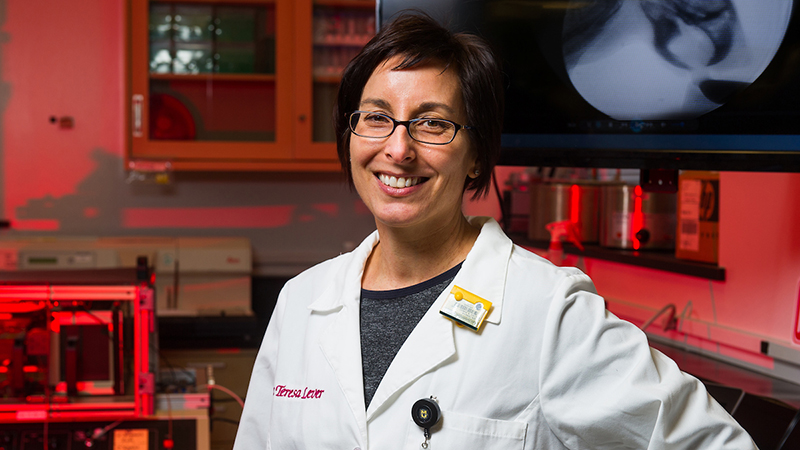
Teresa Lever, PhD, assistant professor of otolaryngology at the University of Missouri School of Medicine, has secured a federal grant to investigate serotonin supplementation as a potential therapeutic for Amyotrophic Lateral Sclerosis (ALS). Serotonin levels have been shown to be abnormally low in ALS patients who develop speaking and/or swallowing impairment as the first symptom of the disease.
Lever was awarded more than $400,000 from the National Institutes of Health for a two-year study to research the impact of serotonin deficiency on speech and swallow function and survival in a mouse model of ALS. Lever’s team will begin by determining how to readily distinguish and classify mice by ALS phenotype, followed by studying how serotonin supplementation might slow the disease progression and extend survival, especially in mice where the disease begins in the head and neck region, paralyzing the muscles needed for speaking and swallowing.
ALS is a progressive neurodegenerative disease that affects nerve cells in the brain and spinal cord, leading to muscle paralysis. There is no cure or treatment to halt its progression, but Lever hopes her research will provide key insights into the disease and lead to new treatments for people with ALS.
“Success would be demonstrating that our mouse model truly has a variety of phenotypes that resemble what we see in people with ALS,” Lever said. “We also hope to find that serotonin supplementation will have a beneficial effect for all of the mice, regardless of phenotype, but especially for those with speech and/or swallowing impairment as the first sign of the disease. That’s the one phenotype in human ALS that has the worst prognosis, shortest survival and the worst quality of life. If we can develop treatments specifically aimed at that phenotype in human ALS, it would be a game changer.”
Lever plans to conduct the mouse model research in the same manner it might be conducted on humans, with behavioral tests that are non- or minimally invasive so that the same subject can be studied throughout the entire course of the disease.
Lever will be assisted by doctoral student and veterinarian Megan Haney, who co-wrote the grant proposal.





